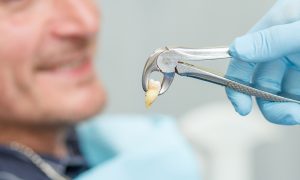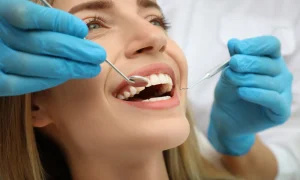
Dental surgery can range from relatively minor tooth extraction or placing a dental implant to major corrective jaw surgery. But to recover quickly and painlessly, proper post-operative care is crucial. There are some of the best dental practice in Philadelphia, but little mistakes when it comes to taking care of your mouth area after dental surgery can make a big difference in how quickly you heal. Keep on reading, as we guide you with the fundamental steps to do post-dental surgery that will result in the best possible recovery and hygiene of the mouth.

Immediate Post-Surgery Care
Obey Your Dentist
All oral surgeons or dentists will give you tailored post-operative instructions for the procedure you have done. These guidelines need to be followed closely to prevent issues and help recovery. This could include directions for managing pain when to take medications as prescribed, and details about eating and drinking.
Managing Bleeding
Some bleeding is normal after dental surgery. Your dentist will pack a gauze pad into the surgery site. Hold the bite down with even but moderate pressure for 30-45 minutes. It is advised by a dentist not to spit after surgery. Rinsing or touching the surgical area with your tongue or fingers is also prohibited.
Avoid Smoking and Alcohol
Smoking and alcohol cause difficulty in healing and also increase the chances of complications such as infection and dry sockets. After surgery, steer clear of these materials for at least 48 hours.
Controlling Swelling
-
Ice Packs:
An ice pack should be held to the outside of the face and mouth area over the surgical site for the first 24-48 hours, apply the ice pack for 20 minutes then remove it and take a 20-minute break.
-
Keep your head up:
Even at night, make sure to sleep with your head in an elevated position to help prevent swelling.
Pain Management
Pain relievers may be prescribed by your dentist or over-the-counter pain medication suggested. Follow a proper schedule and regular usage as per your level of discomfort. Never go over the dose limit.
Monitoring for Complications
-
Signs of Infection:
Monitor for signs of infection (increasing pain, swelling, fever, pus). If you experience any of these symptoms contact your dentist immediately.
-
Dry Socket:
Just be careful if you get a tooth extraction to not lose your blood clot otherwise you will get a dry socket that hurts badly. Symptoms: they have intense pain to the point that The taste/aura is horrid. If you suspect a dry socket, consult with your dentist immediately.
Follow-Up Appointments
Follow through with these. Make sure you schedule the follow-up that the dentist has recommended. During these visits, you will visit a dentist to check on the healing of the extraction sites, remove any sutures if required, and manage any post-operative concerns.
Resource and Help in Philadelphia
· Local Dental Clinics
There are many well-known dental and oral surgery clinics in Philadelphia. Most of these centers offer full post-operation care facilities. Get to know the local choices and select a clinic with exceptional patient care.



